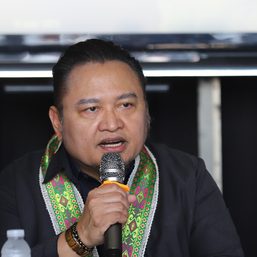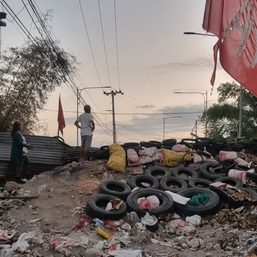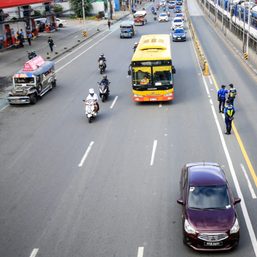SUMMARY
This is AI generated summarization, which may have errors. For context, always refer to the full article.
The idea itself – advanced reimbursements – already speaks of the inefficiency of the Philippine Health Insurance Corporation (PhilHealth), said Senate Minority Leader Franklin Drilon.
“If PhilHealth is efficient in processing claims and paying them on time, you have no reason to launch an IRM or an advanced payment system,” Drilon told reporters on Wednesday, August 12.
The IRM – PhilHealth’s “Interim Reimbursement Mechanism” – lets the state insurer pay in advance hospitals’ and clinics’ insurance claims so they could continue functioning during crises, like the COVID-19 pandemic.
By giving healthcare institutions (HCI) cash in advance, PhilHealth spares them from the long, tedious, and often erratic process of reimbursing the funds they spent on the subsidized consultations and treatments of their patients under normal circumstances.
While Drilon questions the legal basis of such a scheme, he and other senators expressed alarm over PhilHealth’s apparent “favoritism” in releasing IRM funds to HCIs. Some hospitals and clinics were found to have received more cash, and faster, than others.
For instance, PhilHealth promptly released some P226 million in IRM funds to freestanding dialysis and maternity clinics, while several COVID-19 referral hospitals had to wait months to receive their share.
After two marathon hearings on PhilHealth controversies, some senators on Wednesday called for the temporary suspension of the IRM.
“We should suspend the release of the IRM until we can come up with a proper formula and accountability measures for this fund,” Senate Majority Leader Juan Miguel Zubiri said in a virtual media briefing.
“PhilHealth should suspend the IRM up until we can resolve the issues of favoritism, inequitable distribution, and liquidation,” Senator Risa Hontiveros said in a statement.
“Until we are confident that a system can be put in place to ensure that PhilHealth funds are not being corrupted, the IRM has to be suspended,” she added, noting that the state insurer failed to address many questions during the Senate probe.
“Suspend all releases and revise and redistribute the approved allocations. The current allocation system is a complete disaster, and is a huge stumbling block for our hospitals to be able to effectively address the killer pandemic,” said Senator Francis Pangilinan in a separate statement.
“Suspend the disbursements for a very limited period, just to review the list of HCIs for purging of unauthorized recipients,” said Senator Panfilo Lacson.
Minus the irregularities, Lacson sees the value of the program for HCIs that do deserve the government’s assistance in dealing with the pandemic.
‘Prone to corruption’
“There must be standards that must be set in order that favoritism and, with it, suspicions of corruption will not take place. Number two, there must be strict rules on liquidation,” Drilon said.
Of the total P14 billion in IRM funds PhilHealth released to HCIs as of June 9, only about P1 billion have been liquidated by the recipient HCIs, Zubiri said. This is because PhilHealth itself eased requirements on liquidations for HCIs swamped with COVID-19 cases.
But these are cash advances from the government, not reimbursements, the senator pointed out. Normally, the government requires a “pre-audit” before releasing lump sums, and a “post-audit” within a set period after the release.
Without such restrictions, the IRM is “too discretionary” and “prone to corruption,” Zubiri said.
“Hindi po kayo puwede mabigyan ng pondo kung wala kayong plan of action kung saan ninyo gagamitin ang pera. Hindi ‘yan puwedeng iparada lang doon,” Zubiri added.
(You cannot be given funds without a plan of action on where you will use the money. It cannot just be parked there.)
With PhilHealth claiming to be at risk of bankruptcy, the total P30 billion allocated for the IRM “should be properly accounted for to the last centavo,” he said.
Lacson said there should be an “external audit” of IRM funds already released to HCIs. Hospitals and clinics that fail to liquidate the funds they received should simply return them.
The Senate investigation has so far revealed disparities in IRM releases that senators found questionable.
Of 33 HCIs in Western Visayas claiming their IRM share, 32 have yet to receive it. In Batangas, 3 COVID-19 referral hospitals have received less than 70% of their allotment. In Eastern Visayas, 10 public hospitals were still waiting for their IRM share as of Tuesday.
The Southern Philippines Medical Center in Davao City received the highest share of all hospitals in the country – P326 million – even if the Davao region ranked only 6th in the number of COVID-19 cases.
The dialysis clinic chain B. Braun Avitum already received P45 million in April, even if it does not handle COVID-19 patients.
Senators slammed the “palakasan” or “favoritism” in IRM releases, but PhilHealth denied any irregularity.
An HCI’s IRM share is the daily average of their reimbursements in 2019, multiplied by 90, to approximate what they would spend in a span of 3 months. If a hospital gets a bigger IRM share, that’s only because it also filed for bigger reimbursements last year, PhilHealth said.
Continue the IRM but only for COVID-19
Meanwhile, some senators think that, with a little tweaking, the IRM can serve its purpose.
“We don’t have to suspend it yet but it’s worth examining if the releases have been responsive to the needs of the times, aside from other common ailments of our countrymen,” said Senator Sonny Angara, who heads the Senate committee on finance.
Nationwide testing for COVID-19, especially among the poor, should be the priority, Angara added.
“The IRM is designed to provide cash advances for medical facilities handling COVID-19 cases. All releases of the IRM should only cater to this requirement especially at this point in time,” Senator Joel Villanueva said.
For ailments besides COVID-19, there are PhilHealth’s regular programs. The state insurer should make reimbursing regular claims easier for HCIs, he added.
“Private hospitals are already overburdened with the nonpayment of their claims, and if they are forced to close, our healthcare system might collapse,” Villanueva said.
Senate President Pro Tempore Ralph Recto earlier said he saw no problem in the IRM as a policy. The problem was in its implementation, marred by “palakasan” – favoritism.
“The [PhilHealth] board should do its job. The ex-officio board members should be taking the lead,” Recto said, referring to the Secretaries of Health, Finance, Budget and Management, Social Welfare, and Labor.
“What are they doing?” Recto added.
If the IRM is, as some suspect, indeed a way for some officials to embezzle public funds, Drilon warned of a reckoning ahead.
“I must state and warn at this stage that the officials involved in the IRM could be liable for violation of the anti-graft law,” Drilon said. – Rappler.com
Add a comment
How does this make you feel?







![[Time Trowel] Evolution and the sneakiness of COVID](https://www.rappler.com/tachyon/2024/02/tl-evolution-covid.jpg?resize=257%2C257&crop=455px%2C0px%2C1080px%2C1080px)







There are no comments yet. Add your comment to start the conversation.